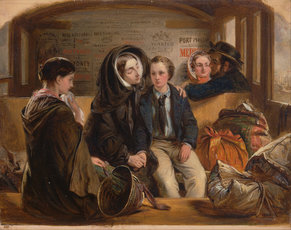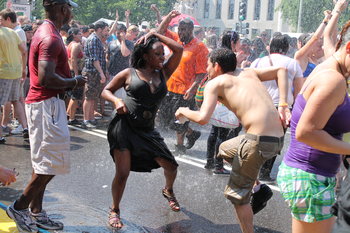
Agency
A low sense of personal agency whereby an individual doesn't believe they influence their own results in life.Responsibility Avoidance
Avoiding responsibility and failing to attribute your failures to yourself.Negativity
Pessimism whereby an individual doesn't believe good things are possible. These future impossibilities are attributed to external factors such as oppression or bad luck.Self-Pity
A tendency to dwell in emotions related to excessive, self-absorbed unhappiness.Resentfulness
An inability to overcome perceived wrongs over time. For example, thinking back to minor insults from decades ago to feed self-pity.Self-Absorption
Obsessive concern with one's own problems and an inability to see that others around them have similar problems.Entitlement
A sense of elitism, privilege and entitlement that leads to disappointment when this status and privilege isn't delivered to expectations.Moral Elitism
The belief that you have superior morals such that you are victimized by the incorrect morals of others.Learned Helplessness
Learned helplessness is the inaccurate belief that something is difficult, unlikely or beyond your control. In the case of victim mentality, this may be designed to feed self-pity, avoid responsibility and draw sympathy from others. For example, a student who makes an unreasonable claim that it is impossible for them to do well in math class because the math teacher doesn't like them.Fragility
Oversensitivity to perceived criticisms, insults or omissions and the view that these things damage an individual forever.Anomie
Victim mentality can create a sense that one is an outcast from society and culture. This feeling is known as anomie.Manipulation
In some cases, victim mentality can be manipulative such that it is used strategically to try to control or undermine others.Critical Theory
Critical theory is a postmodern Marxist academic tradition based on several assumptions: power structures are oppressive, cultures are power structures and individuals have little or no agency. This is currently a dominant academic approach that tends to portray individuals as hapless victims of society, culture, institutions, language, media, markets and technological change.Victimhood Culture
The theory that some cultures give status, attention and power to those who claim to be victims such that members are given incentives to highlight their victimhood. This can be contrasted with a dignity culture based on an stoic ethic such as "sticks and stones may break my bones, but words will never hurt me" where people are expected to try to resolve relatively minor injustices themselves without complaint.Notes
Victim mentality can be a character trait, behavior, thought process or ideology.Critical theory shouldn't be confused with critical thinking.By definition, if one is truly a victim of a significant injustice, victim mentality doesn't apply.| Overview: Victim Mentality | ||
Type | ||
Definition | A pattern of unreasonable beliefs or assertions that one is a victim of others. | |
Related Concepts | ||































